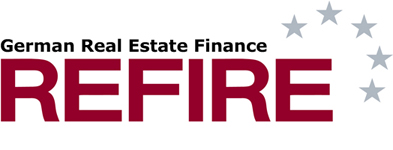
INREV
INREV Survey in Frankfurt
Presenting the latest findings at the Villa Kennedy in Frankfurt earlier this month, INREV’s CEO Dr. Matthias Thomas and head of research Casper Hesp had an optimistic message to deliver.
Glancing over INREV’s notes before its recent presentations in London and Frankfurt for its global Investment Intentions Survey, we noted the headline, “Investors Bullish about Real Estate in 2014”. Where, we wondered, had we seen that before? In fact, it occurred to us, don’t investors tell INREV every year at this time that they’re planning to increase their real estate allocations for the coming year? We think EPRA is told the same thing as well every January by its members. This year, not surprisingly, the INREV respondents arebullish again.
Presenting the latest findings at the Villa Kennedy in Frankfurt earlier this month, INREV’s CEO Dr. Matthias Thomas and head of research Casper Hesp had an optimistic message to deliver, based on the results of INREV’s annual Investment Intentions Survey, which INREV has been carrying out since 2007. This time INREV could draw on supplementary research from sister organisations ANREV and PREA in Asia and America to provide a more global perspective.
What does the survey conclude? This year the 142 participating institutional investors in the survey expect to increase their allocations to real estate from 9.5% to 10.3% of their overall portfolios, or upping their investment to about €35bn. The biggest growth is seen in Asia Pacific, with 53.8% of those surveyed planning to increase their allocations to the region over the next two years.
The report shows European investors also have an optimistic outlook on the market, with 48.9% of respondents saying they expect to increase their allocations. There is more caution amongst North American investors as only 26.9% plan to do the same while the majority (61.5%) do not expect allocations to change. More stable economic conditions and a weak correlation with bond and equity markets mean that real estate remains a popular choice for investors looking to diversify their portfolios. This was borne out in the survey findings, with diversification benefits cited by investors and fund of funds managers as the top reason to invest in real estate, scoring an average importance rating of 4.2 (out of 5), up from 3.9 last year.
For Europe, the survey results suggest that interest in joint ventures and club deals, which remains high, may now have passed its peak. Over a third (36.6%) of respondents expect to increase their allocations to these products, which is more than ten percentage points lower than a year ago.
Debt will be a popular investment target over the next two years. Overall, 25.2% of investors expect to increase their allocations to real estate and mortgage debt, with large investors in particular looking to increase their exposure to debt markets. And fund managers of all sizes continue to launch real estate debt products.
“These results show a stabilisation of confidence amongst investors with increased allocations to real estate, which is good news for the sector,” said head of research Casper Hesp. “There are also signs of a potential change in emphasis with investors searching for the optimum way to structure their portfolios to achieve the ideal investment mix.”
There was good news for the non-listed real estate sector as the percentage of investors saying they expect to reduce their allocation to non-listed has fallen significantly, from 30.5% in 2013 to 18.5%. With the proportion of investors wishing to increase their allocation to non-listed real estate funds remaining almost unchanged from last year, the result is a higher net balance in favour of non-listed funds - notably from smaller investors - bucking the downward trend of the previous three years.
Germany, France and the UK will remain the top priority markets for 2014. Buoyed by strong support from domestic investors, Germany remains the top European country, with 58.3% of investors and 70.5% of fund managers expecting to invest there this year. However, the UK is the preferred location for cross-border investment.
UK offices is the most popular country and sector combination preferred by 45% of investors. Then comes the French offices sector (favoured by 44% of investors), followed by Germany offices (preferred by 43% of investors).
Retail was the most popular sector overall for investors and fund managers, while there was a noticeable increase in interest in residential, suggesting that this sector is proving its viability.
Outside of the core markets, Spain, recognised as the most popular of the ‘club Med’ economies, looks set to be on the comeback trail in 2014. According to the Survey, 41.7% of fund of funds managers, 31.3% of fund managers and 22.6% of investors expect to invest there this year.
“The global Investment Intentions Survey reflects a generally positive sentiment across the industry as we enter 2014. And while we see some familiar anticipated behaviours - such as European investors adopting a mostly defensive strategy and their US and Asian counterparts being more opportunistic - in Europe there are also interesting shifts in attitude with a growing appetite for risk. These results suggest an industry in the midst of change,” concluded CEO Matthias Thomas.
